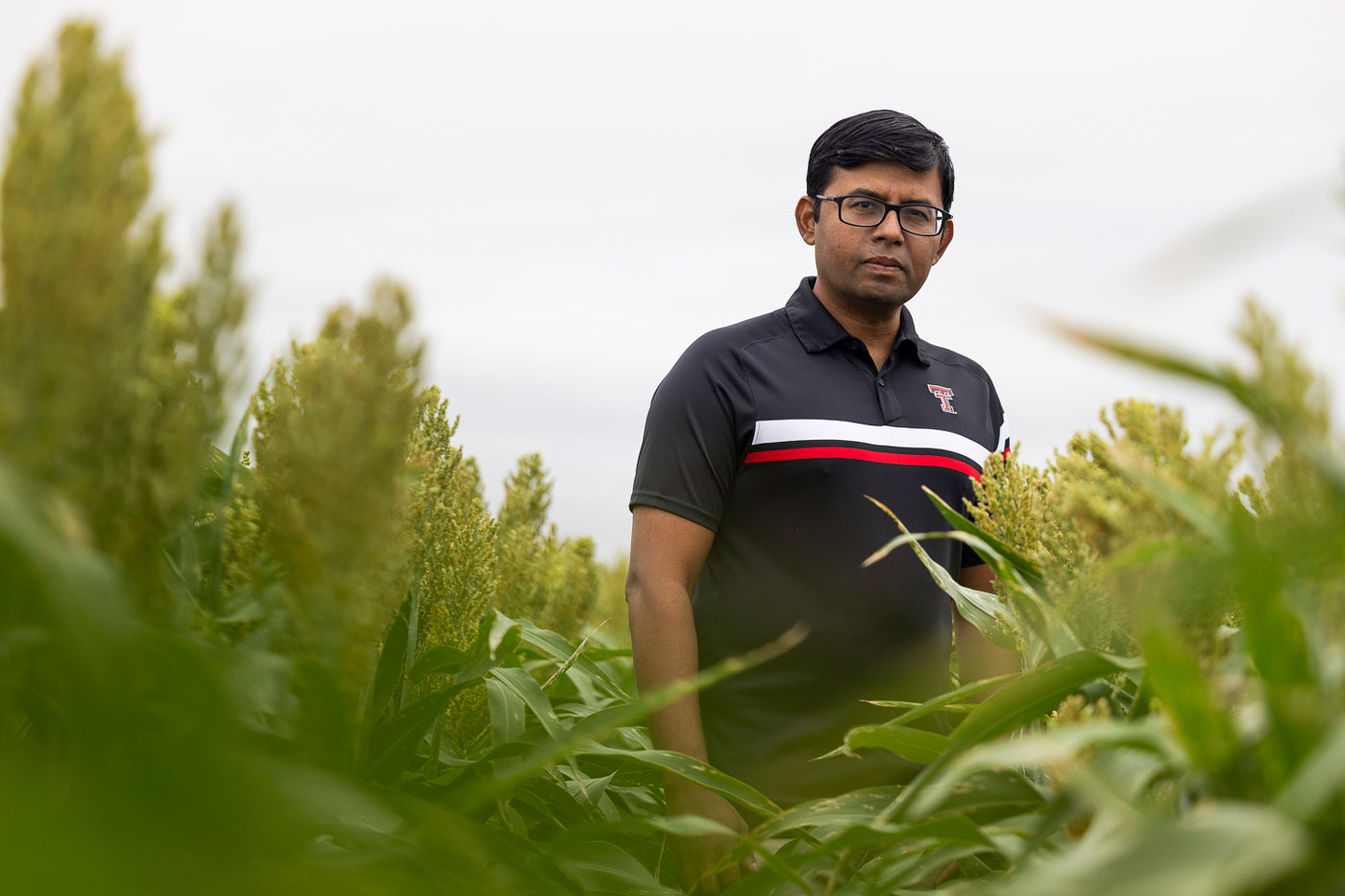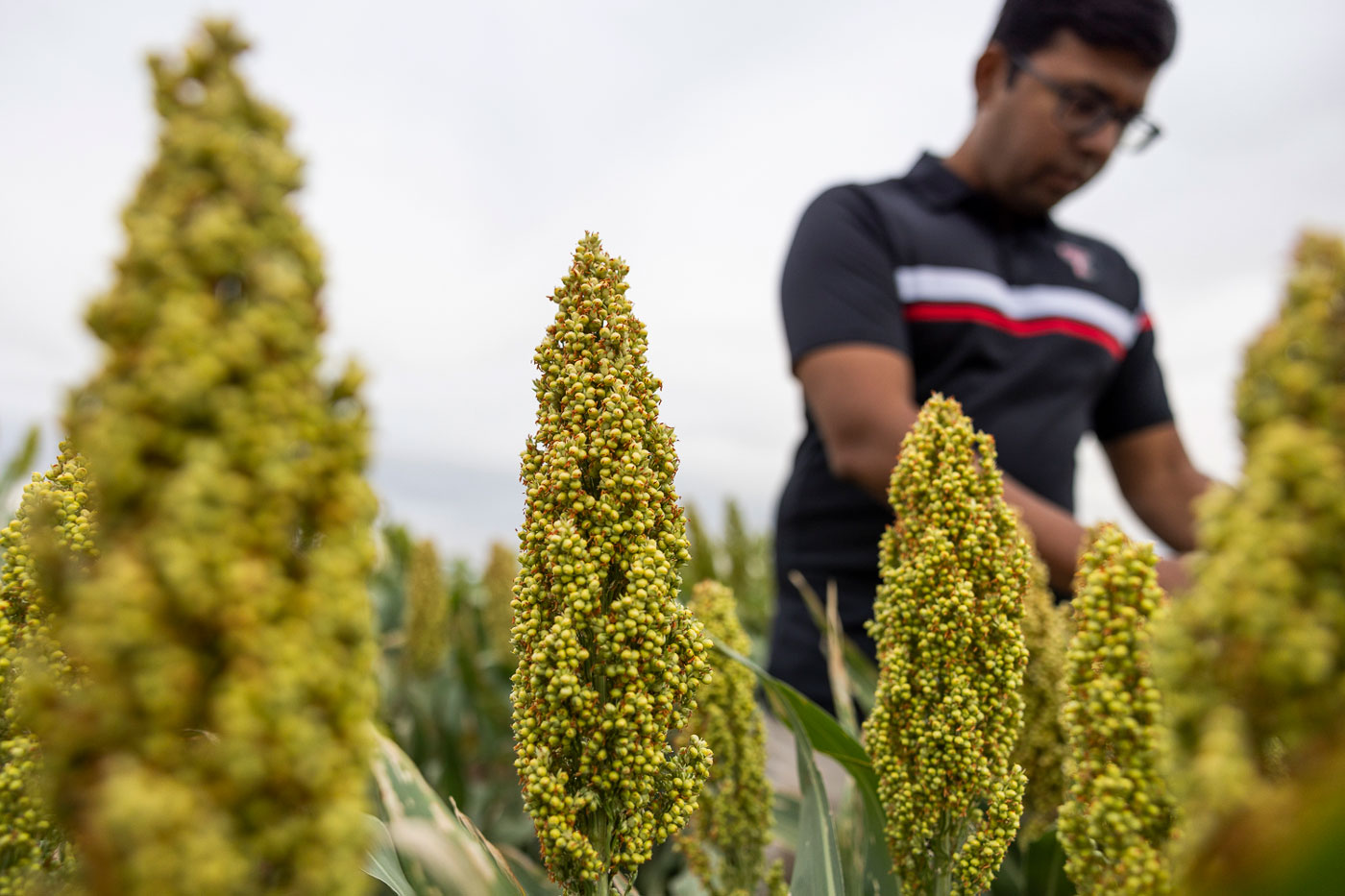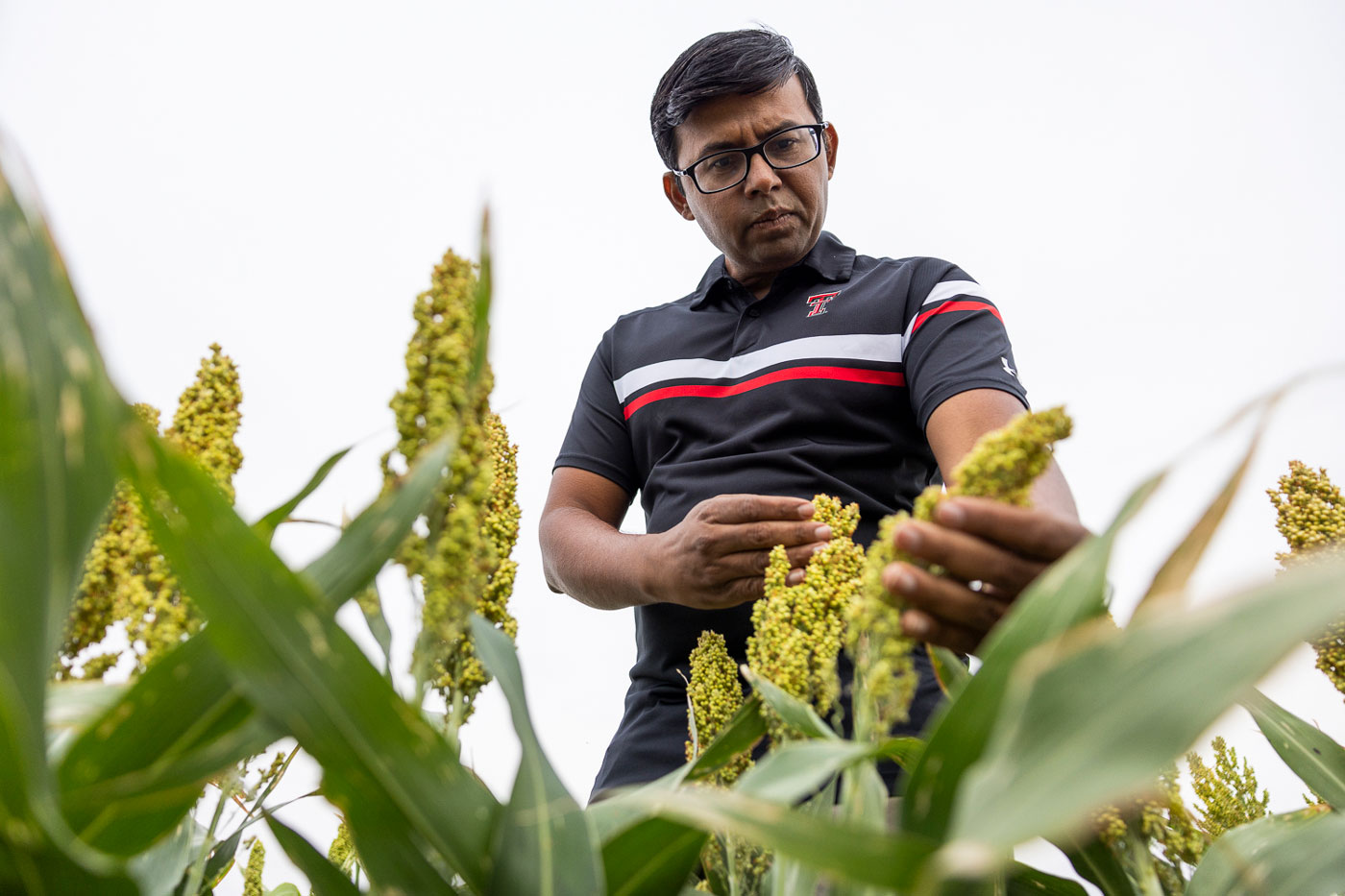Researchers at Davis College are working to ensure the vitality of West Texas for years to come.
In Texas terms, it’s just a hop, skip and jump up Interstate 27 to make the trek from Lubbock to Amarillo.
It’s a path many area residents are familiar with, a stretch of road 120 miles long connecting neighboring cities.
When outsiders make the drive they notice places like New Deal, where the football stadium stands proudly just yards away from the interstate, or Abernathy, where the John Deere tractor dealership shows off the latest equipment as you pass through. Grain silos are hard to miss in Hale Center and Plainview, and each small town offers some little piece of Americana.
In between those towns, the traveler sees a lot of land, open spaces rowed up and irrigated or being used for some other agricultural need. By the time a traveler reaches Interstate 40 in Amarillo, there’s little doubt the area they’ve just passed through is for producers.
In the picturesque setting between Texas Tech University and the Texas Tech University School of Veterinary Medicine in Amarillo, cattle and crops are king.
Somewhere along the drive, just east of New Deal, sits 120 acres of farmland used by Texas Tech.
It’s not a massive piece of property by Texas standards, but the work being done there might make it the most important plot of agricultural land in the area.
Most days at the Texas Tech Research Farm at New Deal you’ll find either Krishna Jagadish or one of his students out among the rows of crops.

“We have a 12-acre plot in New Deal,” Jagadish said about one of the long-term studies he and his research team lead. “That plot is broken into one-acre replications with regionally relevant climate-smart practices to be used for demonstrations.
“We can’t really replicate the 120 acres that a farmer would have under a pivot, but we’re not going down to a five-meter square, right? An acre is a pretty sizable area. With these plots, we can get the yield on a one-acre basis, which gives us something the producers can relate to.”
Jagadish hasn’t been at Texas Tech long, but his impact has already been massive. A professor and Thornton Distinguished Chair in the Department of Plant and Soil Science, Jagadish uses the research farm for these test plots.
His work is heavily focused on water and how its use and conservation measures relate to crop production. He uses the latest technology on different crops, measures water usage and crop yield to study the best solutions for lacking water supplies and helps figure out best practices for area farmers.
But Jagadish isn’t just making suggestions. He brings producers to the research and the research to their farms.
“The whole idea is to expose producers to the technology,” he said, “for them to see what it actually does. Then it’s left to them whether they want to use it or not. If they see the economic advantage, they’re going to invest money in it.”
Impactful Research
When scientific research is mentioned, people often think of it in the abstract – like it’s an episode of “The Big Bang Theory” and the researchers are trying to figure out string theory. At times, that is accurate. But, more often than not, research is being done to address a direct and pressing concern rather than answering the theoretical questions of the universe.
In Jagadish’s case, that pressing concern is a dwindling water supply for agricultural production across much of the High Plains. More pointedly, he’s looking for ways to keep the fiber and food planted in the West Texas soil flowering abundantly for future generations, even if water resources become more limited.
Jagadish came to Texas Tech from Kansas State to help expand the research capabilities of the Davis College of Agricultural Sciences & Natural Resources.
“I feel Texas Tech has given me what I need to be successful,” he said. “There are always going to be places where we can improve, and that’s the reason they brought me here, to improve some of those areas where I think I can help.”

Jagadish saw an opportunity at Texas Tech. One of the few Carnegie Tier 1 Research Institutions located in both a semi-arid climate and a massive agricultural production area, the Texas Panhandle provided the perfect laboratory for his work.
With support from Texas Tech and Davis College, he hit the ground running, chasing down new partnerships and sources of funding.
In short order, he had partnerships lined up with Kansas State, Texas A&M, the University of Arizona, the U.S. Department of Agriculture (USDA), the National Sorghum Checkoff, the National Sorghum Producers, other departments and colleges around Texas Tech, and even Tito’s Vodka.
“Tito’s was looking to fund something, but they weren’t sure who to fund,” Jagadish explained. “At that time, our Davis College Water Center was really not in an operational structure. So, we regrouped, and I worked on that for three months from the time I took over as director of the water center. By the time Tito’s wanted a proposal, I had everything laid out for them.
“The project is truly interdisciplinary. The company bought into the whole idea. That industry is interested in funding some of these areas, which are extremely important for the region and for sustaining agriculture.”
The Davis College Water Center is just part of Jagadish’s job. It’s where his research takes place. He’s also the director for the Texas Coalition for Sustainable Integrated Systems and coordinator for the Texas Alliance for Water Conservation (TAWC), where his findings are put into practice by area producers.
His work hasn’t gone unnoticed, and Jagadish is helping drive the impact Texas Tech is making on one of the fundamental elements of agricultural production.
“When you think about what agriculture does, it’s sustaining the future of food and fiber production, which ultimately leads to the long-term sustainability of rural communities,” said Davis College Dean Clint Krehbiel. “Dr. Jagadish brings a vision and intellect, but he also brings a work ethic. Those are three key elements of a successful faculty member to what we do here.
“He’s been instrumental in envisioning and growing out the Davis College Water Center, which is the applied research arm of our Davis College water security initiative as related to agricultural issues. And then TAWC is more of the outreach and engagement. So, we’re building both of those areas out.”
Putting in the Work
Since joining the Texas Tech faculty in 2021, Jagadish has earned more than $11 million in funding from his various sources to help with his mission.
His projects have a wide range of impacts while all working together toward the same goal.
In one initiative, he’s working on designing climate-smart sorghum hybrids and in the next looking at crop rotation between sorghum and cotton to increase yield and value in both.
One other project is looking at climate-smart commodities.
“All researchers on this $5 million project are from Texas Tech and the money stays in Texas,” he said. “Though we are not working with any other university, we do have people from ag education, economics and plant and soil sciences to showcase our in-house multi-disciplinary strength.
“The whole idea is we are targeting three climate-smart commodities: no-till, incorporative sorghum-cotton rotation and cover crops. Right now, we’re working with 45 producers in the region.”
The Tito’s Vodka gift to the water center is focused on soil-water-plant sensors; hydrological and crop-climate modeling; forage rangeland and livestock; and adoption of the technologies for rural development.
On top of that, he has a leading role in a transdisciplinary project funded by a catalyst grant from Davis College looking at new irrigation-related technological ideas. The project will help revitalize TAWC efforts to strengthen water conservation efforts in the southern High Plains of Texas.
“The catalyst grant, which is internal, has six of the seven departments in Davis College on it,” Jagadish explained. “My role is to try and build our younger faculty more into transdisciplinary research.”
The projects and collaborations make for long days, but that’s just the way Jagadish likes it.

Far From Done
While the opening act for Jagadish at Texas Tech has been impressive, he’s just getting started.
The Global Sorghum Conference is coming to Lubbock, thanks in part to his work, bringing a world of knowledge and ideas to the region. And bigger research projects with an even greater impact are on the horizon.
“I met this researcher, Andrew Cibils, who is the director for the USDA’s Southern Plains Climate Hub,” Jagadish said. “I started talking to him and said, ‘We should do something regional; that’s what will be more powerful.’ Because if we look at western Kansas, the Oklahoma Panhandle, West Texas, we’re all struggling with it being dry.”
Collaborating with multiple water centers at other universities opens up the possibility of testing the same types of technologies and practices on different soil types and in regions with vastly different annual rainfall totals.
The potential impact could be massive, but the core of everything Jagadish does is in hopes of making life better for producers, even as water resources become scarcer.
“I think we can still be productive and be sustainable,” he said. “I think we just have to test and adopt some of these feasible technologies and practices. Some might work in some places, some might not. That’s the whole point of testing so many producer plots. Every farm is a lab.
“Everybody has their own decision-making approaches, their own cropping systems, different soils, different irrigation systems and timing. Everything is different. So that’s why you have to work with these producers to give them solutions for their own farms. They really don’t care a whole lot about what’s shown to potentially work at the national level or county level. They want to know what will work for them.”
Jagadish’s passion for his work, for helping producers and for finding sustainable solutions is easy to spot.
He speaks excitedly about the projects he has going and the ones he hopes to take on in the future. He brings people together and is the type of professor who ensures that Tech will continue to meet the needs of West Texas for generations to come.
“Having Dr. Jagadish, who is a passionate visionary and get things done,” Krehbiel said, “is critically important to the future of what we can do at Texas Tech University to ensure water security and conservation to sustain economically profitable agriculture long into the future.”

